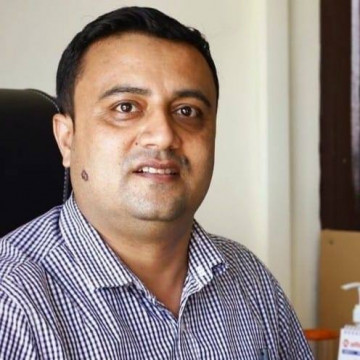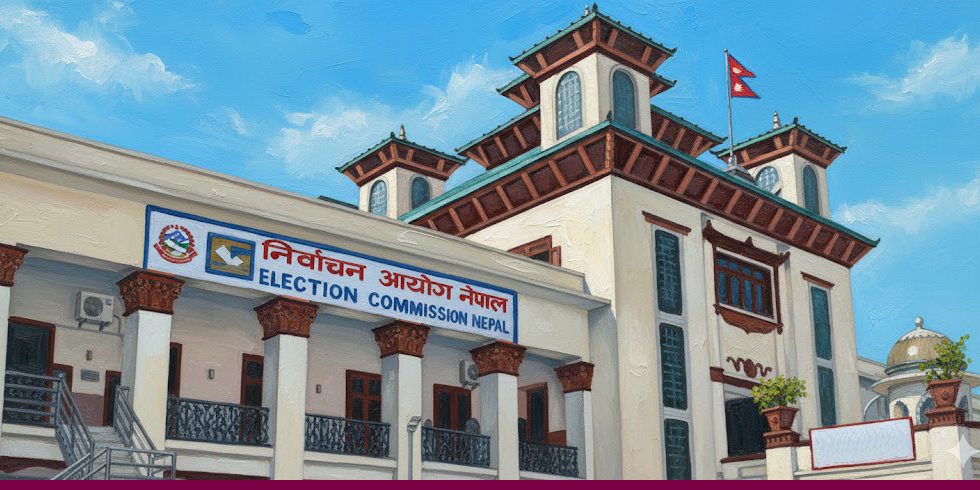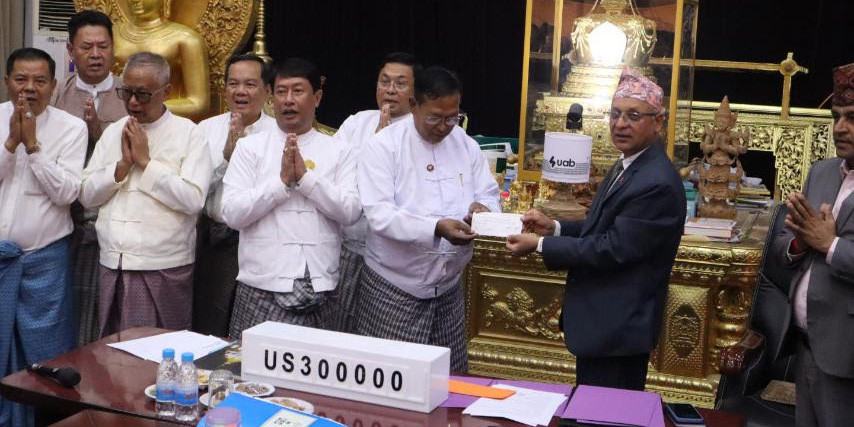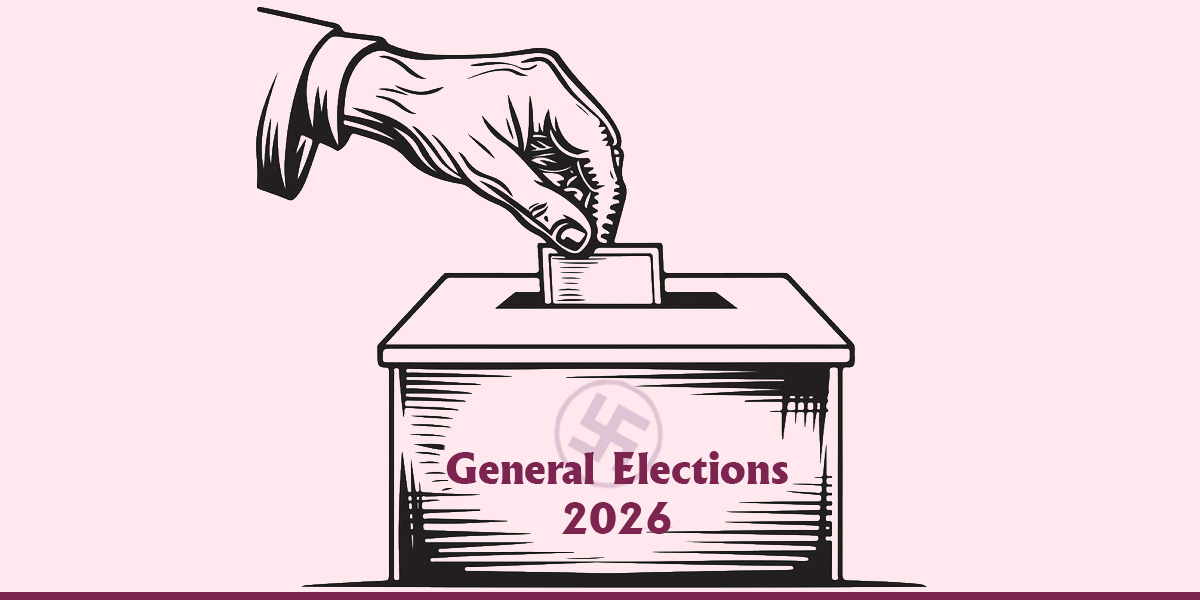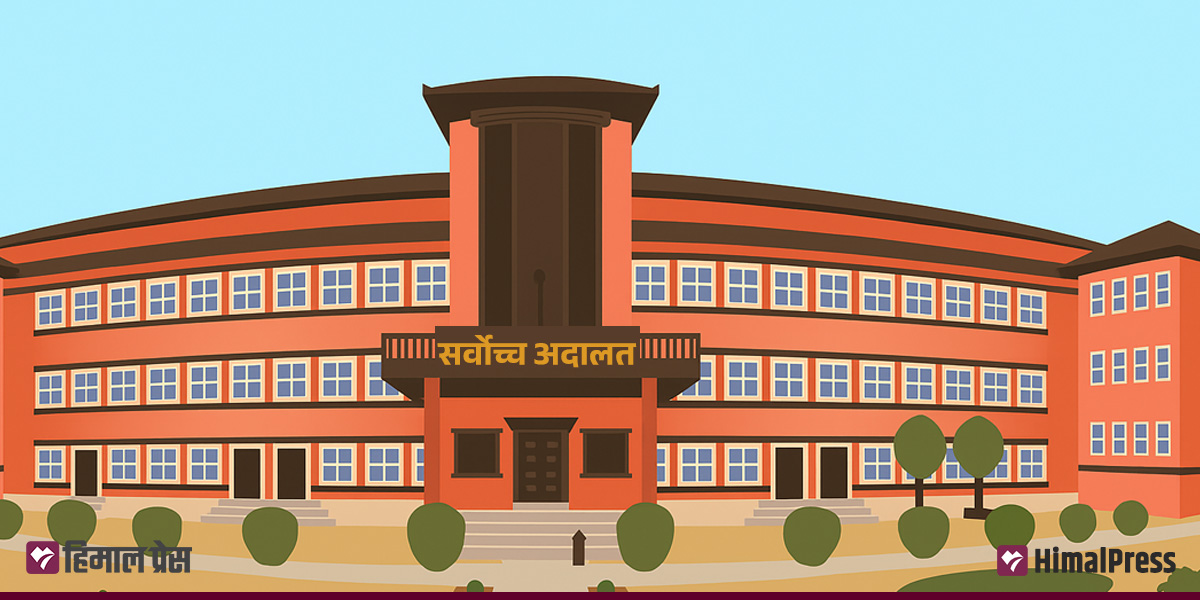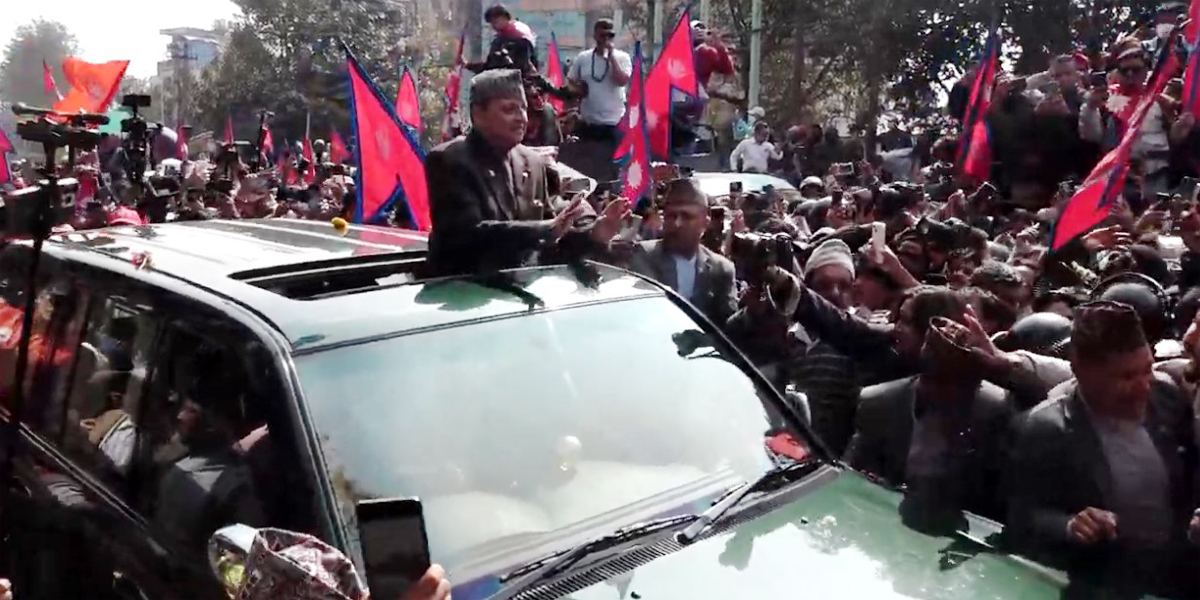
Ambassador of Nepal to Qatar, Dr Naresh Bikram Dhakal, is in the limelight following the two-day state visit of the Emir of the State of Qatar to Nepal. In an interview with Chandra Shekhar Adhikari of Himal Press, Dr Dhakal talked about Nepal-Qatar relations, Nepal’s diplomacy and other issues. Excerpts:
How have you taken the recent Nepal visit of the Emir of Qatar?
Emir of Qatar Tamim bin Hamad Al Thani recently completed his two-day official visit to Nepal. Everyone took the visit with great enthusiasm. I feel he has taken a good message from Nepal. As an ambassador, I believe his visit was successful. Some are saying that the outcomes of the visit were not as per expectations. But still, whatever was supposed to happen went well. Agreements were signed. If needful work is done accordingly, success will be achieved in the coming days. Although many of our expectations do not seem to be fulfilled from the visit, it should not be underestimated. Such visits have historical significance.
Was the Qatari Emir’s visit your sole initiative or was it done at their keen desire?
I had presented 13 different work plans to the hearing committee after I was recommended for the position. Bringing the Emir of Qatar for a Nepal visit was number two on that list. While presenting my credentials to the Emir of Qatar, I raised the issue of his Nepal visit. At that time, Qatar was preoccupied with the 2022 World Cup. So the Qatar government responded that the Emir would visit Nepal at an appropriate time in 2023. Over two years, I got the opportunity to meet the Emir five times. In every meeting, I raised the issue of the Nepal visit. He was initially scheduled to visit Nepal on November 6-7, 2023. But it was postponed after the Hamas attack on Israel.
The visit materialized due to the interest of both the inviting and invited parties. Other Gulf countries have also viewed this with great importance.
Can such visits happen from other Gulf countries as well?
Certainly. The visit has given inspiration to the heads of other Arab countries to visit Nepal as well. There are Nepalis in other Gulf countries too. From this visit, I feel that other countries have also received the message that they need to develop bilateral relations with Nepal in a different way. Not only the Qataris, but citizens of other countries will also have a different perspective on Nepali citizens in Qatar after this visit.
The significance of the Emir’s Nepal visit is not something that can be analyzed in words, numbers or facts alone, but has to be internalized. As the results will be visible in the coming days, I have taken it with great importance. As an ambassador who was able to facilitate the visit, I feel a sense of pride and that I have fulfilled some of the responsibilities given to me by the state to some extent.
How comprehensive are the agreements and understandings reached between the Qatari Emir and Prime Minister Pushpa Kamal Dahal after their bilateral talks? When will the issue of forming a joint working committee for cooperation take a concrete shape?
Our list of needs is long and a bit different. When the memorandum of understanding was signed, it felt different from our needs and immediate benefits. This is natural. It seems that some issues will only become apparent later, and we also need to prepare for them.
The understanding covers a broad area. Work on that will gradually happen. Prime Minister Dahal said that it would be convenient for us if Qatar Airways could operate flights to Gautam Buddha International Airport and Pokhara International Airport. Similarly, Nepal prioritized tourism, agriculture and energy during the talks.
The Emir also talked about exploring the possibilities in these areas and forming a joint working committee to invest accordingly. As an ambassador, I will make a concerted effort to form a high-level working committee. It holds special importance as it was raised by the Emir himself. Particularly, I believe the working committee will be crucial to attract investment in the agricultural, tourism and energy sectors as per Nepal’s expectations.
With no investment protection agreement between Nepal and Qatar, how will the private sector be attracted?
This is where the problem lies. There is no investment protection agreement between Nepal and Qatar. Our bureaucracy is not conducive. So both sides need to have serious discussions. I will initiate discussions in Qatar about BIPPA agreement and labor agreements, among others. I will also work to create an environment conducive to investment in Nepal by holding discussion with the private sector. As there have been sector-wise discussions and understandings, preparations need to be made accordingly. Qatari investors are also hesitant to invest here due to the political instability in Nepal and the lack of investment security.
Why couldn’t the labor agreement be renewed?
The labor agreement between Nepal and Qatar has been in place for 18 years. The agreement has not been renewed. We have been saying time and again that it needs to be updated. Qatar has been stating that the revised agreement should allow the recruitment of Nepali workers for household jobs. Our parliamentary committee has decided not to send domestic workers. This has also been causing problems.
The nature of work for domestic workers and other workers is different. Domestic workers have to work almost 18 hours, so decisions also need to be made with careful consideration. Nepal has also been calling for a review of the basic remuneration of workers.
Qatar’s labor law does not discriminate against workers from any country. There are over 300,000 Nepalis in Qatar. Likewise, Qatar is home to over 800,000 Indian, 400,000 Bangladeshi and 300,000 Filipino migrant populations. When revising the agreement with Nepal, Qatar may also have to deal with other countries in the same way. That could be the reason why the labor agreement with Nepal couldn’t be revised.
Where has the process of gifting a pair of elephants to Qatar reached?
The process has already begun. Qatar made requests for a pair of elephants in 2017, 2018 and 2021. After I assumed the office in Qatar, I expedited the process. I had raised the issue of gifting elephants during Qatar Emir’s visit with the President, Prime Minister, and Forest and Environment Minister.
What has been your experience working with the employees of the foreign service?
I have extended full cooperation from my side. But the perception that I had of the foreign service and diplomats has been shattered. I am a person who has worked as a teacher, at USAID and as a lawyer. I used to think that people in the diplomatic field would be much superior. But that is not the case. There are very few people in the foreign service with the diplomatic skills I had expected.
I think only those with diplomatic knowledge should enter the foreign service. The existing quota system for the appointment of ambassadors needs to be removed. I have observed foreign service employees from India, Singapore, and other countries. They are thorough professionals. Our ambassadors appointed from the ranks struggle to converse with political leadership. Therefore, only those who have studied political science, law, and international affairs should be recruited into the service. At present, there is a dominance of those, who have studied literature, in the foreign service. Some of them even lack writing skills. While a few are skilled in making tall claims and flattery, they lack diplomatic acumen. I see the need to reform this issue in the new Civil Service Act.
Only the politically appointed individuals should be assigned at the higher levels. It would be appropriate to assign foreign service cadres in second-tier countries. Instead of making direct political appointments, establishing a process to select highly capable individuals will deliver better outcomes.

